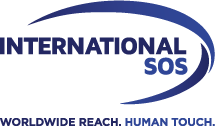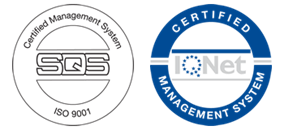Successful Yaws study shows power of partnerships
Sydney

Doctors are a step closer to eradicating yaws, a chronic infectious disease that mostly affects children, with a clinical study involving a new treatment and different approach showing excellent results.
The latest results, published today in the New England Journal of Medicine, show a significant decrease in the prevalence of yaws following mass treatment of residents of rural villages in Papua New Guinea.
The study is being conducted at Lihir Medical Centre in collaboration with the Centre for International Health Research of Barcelona (CRESIB). It is funded by International SOS and Newcrest Mining Ltd as part of a sustainability and development programme on Lihir Island.
Similar to syphilis, yaws is a chronic infection that primarily affects the skin and bones of people under 15 years old. It is transmitted mainly through direct skin contact with an infected person. Left untreated it can lead to severe deforming bone lesions.
Yaws mainly affects populations living in overcrowded conditions with poor water supply, personal hygiene and lack of sanitation. It is currently documented in 13 countries in Africa, Southeast Asia, and the Western Pacific region, however, a lack of systematic mapping and no official notification of the disease in many countries means this is likely an underestimation.
Australia is currently classified by the World Health Organization (WHO) as a previously endemic country with current status known. The last study carried out in 1972 reported a prevalence of latent yaws ranging from 4-60% in different Aboriginal communities.
Yaws is classed by WHO as one of 17 neglected tropical diseases disproportionately affecting economically disadvantaged populations. In 2013 it was added to the list of diseases endorsed for global eradication by 2020.
“We are extremely proud to be involved in this important study, which is not only having a positive impact on local communities but it is informing global intelligence of yaws and guiding strategies to achieve its eradication,” International SOS co-founder, Arnaud Vaissié, said.
“The funding model of this research demonstrates how foreign companies can contribute to improving the health and wellbeing of people affected by neglected tropical diseases at local, national and global levels. It is a great example of what a genuine partnership between corporate, industry and science can achieve,” he said.
A large-scale eradication programme by WHO in the 1950s using injectable, long-acting penicillin almost eliminated yaws, but as programmes were dismantled there was a resurgence of the disease.
Key concepts of the new approach include treating all eligible members of communities in which yaws is endemic with oral antibiotic, azithromycin. Where azithromycin is contra-indicated, an injection of intramuscular penicillin G benzathine is given.
Mass treatment is followed with active surveillance and targeted treatment of symptomatic as well as latent (asymptomatic) yaws at approximately 6-month intervals, particularly in children.
~~Ends~~
About the International SOS Group of Companies
The International SOS Group of Companies is in the business of saving lives, protecting your global workforce from health and security threats. Wherever you are, we deliver customised health, security risk management and wellbeing solutions to fuel your growth and productivity. In the event of extreme weather, an epidemic or a security incident, we provide an immediate response providing peace of mind. Our innovative technology and medical and security expertise focus on prevention, offering real-time, actionable insights and on-the-ground quality delivery. We help protect your people, your organisation's reputation, as well as support your compliance reporting needs. By partnering with us, organisations can fulfil their Duty of Care responsibilities, while empowering business resilience, continuity and sustainability.
Founded in 1985, the International SOS Group, headquartered in London & Singapore, is trusted by 12,000 organisations, including the majority of the Fortune 500, as well as mid-size enterprises, governments, educational institutions and NGOs. 12,000 multicultural medical, security and logistics experts stand with you to provide support & assistance from over 1,000 locations in 90 countries, 24/7, 365 days.
To protect your workforce, we are at your fingertips: www.internationalsos.com
About the Center for International Health Research at Hospital Clinic of the University of Barcelona (CRESIB)
CRESIB is a new global health institute based at Hospital Clinic of the University of Barcelona, which is the leading Spanish biomedical research center. Research into poverty related diseases and building research capacity in Africa are two cornerstones of its mission. The center, with core funding from the Catalan Government, hosts one of the world’s leading groups in the development and testing of malaria control strategies. For more information visit: www.hospitalclinic.org & www.cresib.cat
About Newcrest Mining
Newcrest is a leading international gold mining company and has had operations in Lihir Island since 1996. As part of its commitment to sustainable development on the island, Newcrest funds a community health plan, which addresses existing and emerging health issues which incorporate curative and preventive health measures.








